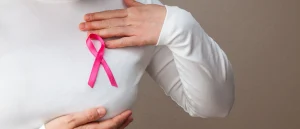
Do your breast self-exams and get your mammogram. That’s all you need to remember about breast cancer, right? Not quite. Knowing the facts about breast cancer can save your life or the life of a loved one. Breast cancer is one of the most common cancers in women, yet there are still things you may not know about it. Read this article from The Dermo Lab to learn all about breast cancer and protect your health.
Here are 10 facts about breast cancer that you may not yet know:
- Breast cancer does not always appear as a lump.
In its early stages, breast cancer usually has no symptoms. When symptoms do appear, it is not always a lump. Look for any signs below and report them to your doctor immediately.
- Lump in your breast
- Swelling in or around the breast, collarbone, or armpit
- Thickening of the skin or redness in or around the breast
- Heat and itching in the breast
- Nipple change or discharge
- Pain in the breast for more than three or four weeks
- Having a male relative who has had breast cancer increases your chances.
You are more likely to get breast cancer if you have a male relative who has had the disease. This is especially true if it is a close family member such as a father, brother, or son. If you are in this group, ask your doctor to do a genetic test to find out if cancer runs in your family.
- Maintaining a healthy weight can reduce your risk of breast cancer.
Being overweight or obese – especially after menopause – can increase your cancer risk. To keep your cancer risk low, avoid gaining weight by eating healthy foods and staying active. Eat a plant-based diet rich in fruits, vegetables, whole grains, and beans. And try to fit at least 30 minutes of physical activity into your day.
- You don’t need to learn how to do a self-examination.
Studies show that it’s not necessary to do a monthly breast self-exam.
It’s more important to stay aware of how your breasts look and feel. If you notice any changes, report them to your doctor right away.
- Drinking several glasses of alcohol daily can increase your risk of breast cancer.
Having a glass of wine once in a while is not bad for your health. But drinking several glasses a day can increase your risk of breast cancer.
- More women are surviving breast cancer.
From 1989 to 2015, the number of women who died from breast cancer decreased by 39%. Experts believe this decrease is due in part to cancer being detected earlier through regular screenings.
- Ethnicity plays a role.
Breast cancer is more common in white women and African American women. While rates for white women have stabilized, breast cancer rates for African American women have increased slightly in recent years.
- Mammograms are all about magic.
Okay, not totally magical, but these screenings can detect changes in the breast years before you notice any symptoms. This allows breast cancer to be detected at an early stage when it is more treatable. That’s why it’s so important to have a mammogram when your doctor recommends it.
- Symptoms may be outside the breast.
Breast cancer can spread to the lymph nodes. It can cause swelling or a lump around the collarbone or under the arm even before the initial tumor in the breast is large enough to be felt. Your doctor should check for any swelling of the lymph nodes, even if they are painless.
- Men can get breast cancer too.
Each year, approximately 2,670 men will be diagnosed with breast cancer (less than 1% of all diagnosed breast cancers). Although this number is small, men should still periodically self-examine their breasts in the shower and report any changes to their doctor.
Most of the time, male breast cancer is discovered because of a lump in the breast. A discharge from the nipple in men is also a warning sign.
When it comes to breast cancer, the most important thing to remember is that early detection is vital. Early detection includes scheduling regular clinical breast exams and mammograms. In addition to these recommended exams, women should be aware of the look and feel of their breasts and report any changes to their doctor immediately.









